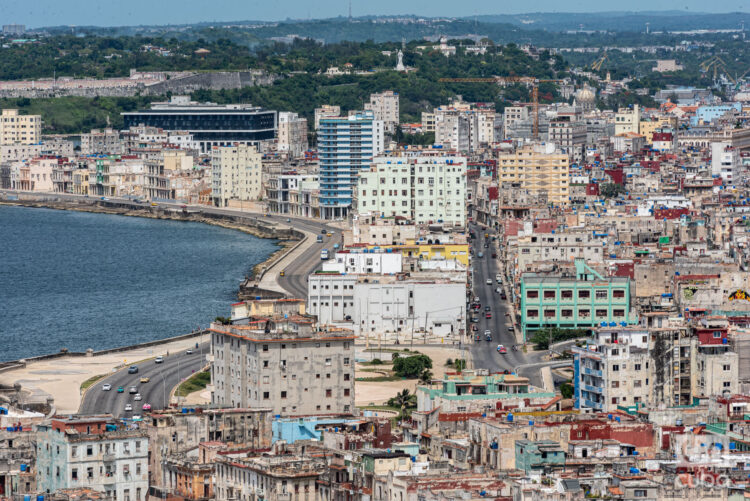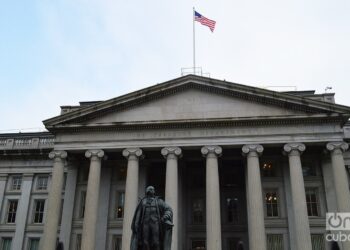In a few days the first quarter of this year will end. The long-announced macroeconomic stabilization program is still not publicly known. From time to time, glimpses of it appear in the odd report. However, this program is, from my perspective and also that of other colleagues, only part of what must necessarily be done to put the national economy on the path of growth and development.
There are at least three areas of work that must be carried out: that corresponding to the economic reform itself; the one associated with the already famous although almost unknown macroeconomic stabilization program and; the one which should lead to the productive transformation of the country and stimulate international insertion in this complex global economy.
There is no doubt that there are points in common between them, nor that there are relations of precedence and that the country is in extraordinarily difficult conditions to do so. It is undeniable that it is necessary and cannot be postponed to start.
There is not enough public data to allow a detailed assessment of the economic results of these first three months. At least I don’t know them.
As expected, after the announcement of the increase in fuel prices, the price of the dollar in the informal market has continued to rise, further devaluing the Cuban peso and also the freely convertible currency, and reducing the purchasing power of personal income day by day.
The difficulties in guaranteeing access to food that is distributed centrally and at relatively affordable prices to that part of the population that really needs to be subsidized, confirm how difficult the situation is. The same goes for the power supply.
And although tourism’s performance seems to be better than last year in terms of arrivals, it is still far from being the engine that our economy needs and not only because tourists are fewer than those of the golden years, but also because its propensity to import is so high that it more than limits the multiplier effect on the rest of the economy.
This occurs because, among other things, there are indications that limit tourism’s relations with other actors/sectors of our economy, as well as an exchange rate that takes them out of competition and because internal “regulations” persist that make it difficult for the rest of the wagons of the domestic economy to be properly “coupled” into that train.
Changing those indications and regulations that limit this carryover effect should be part of the policy to boost the economy, above all, because of that big bet in terms of investments and new rooms that the government made several years ago and that today seems difficult that they can generate the income that allows the recovery of the investment within the expected periods.
Meanwhile, the agricultural sector in general continues with inertial behavior and the idea of planting more land with fewer resources does not seem to achieve the desired effects.
The accumulation of deficits in investments in agriculture, the weak capacity to import essential inputs, the increase in the price of inputs ― in the formal and informal market ― that the devaluation of the Cuban peso has caused and many other old problems, such as debts maintained by state enterprises with producers, seem to be obstacles that perpetuate and will continue to perpetuate the low contribution of that sector to feeding the population.
Something that is difficult to understand if we take into account that the Revolution carried out a radical agrarian reform, which initially put the land in the hands of those who worked it and humanized agricultural work like very few countries in our region and provided the sector with centers of science and technology like few others have in Latin America.
The good news is the decision to relatively quickly promote the construction of photovoltaic parks that, although they will not solve the “energy problem,” will somewhat alleviate the situation.
That program, which should lead the country to generate a quarter of the energy it consumes with renewable sources, was unfortunately delayed. This delay is paid for today, with a greater energy shortage.
It is incredible that it is not understood that any effort in pursuit of development and well-being is associated with a greater absolute consumption of energy, although its relative consumption is increasingly lower and is qualitatively different in terms of types of sources. Productive transformation needs energy!
Meanwhile, the international context continues to be one of high uncertainty, unflattering certainties, and some pleasant surprises.
A world full of military conflicts is not the best scenario for a small archipelago that depends, to a large extent, on the world market. This instability costs our country much more than others.
The increasingly real possibility that Donald Trump will be the next president of the United States does not allow us to expect anything good from that administration, as he has confirmed in recent statements about Cuba.
Nor is an eventual Democratic administration going to “revolutionize” policy towards Cuba. The House of Representatives has recently approved a resolution proposed by Congressman Mario Díaz-Balart that expressly prohibits dedicating resources from the “funds for the promotion of democracy in Cuba” to projects associated with business reform, economic reform or entrepreneurship, giving continuity to the efforts of Congresswoman María Elvira Salazar to distort the legitimacy of private entrepreneurship and limit its evolution on the island.
Good news is the agreements between Cuba and Russia. Among them, it is worth highlighting the possibility of making debt payments in rubles; deferring payments from the 2023-2027 calendar to 2020-2040; accruing interest on the deferred amounts and also assisting Cuba in the supply of fuel.
It was Carlos Rafael Rodríguez several years before the triumph of the Revolution who called attention to the potential of the socialist market, as an alternative to Cuba’s dependence on the U.S. market.
It is also true that that socialist market as we knew it no longer exists and probably will not exist again for many and many decades, because not even the “socialist countries” that have survived practice those standards anymore.
The socialist market alternative that Carlos Rafael recommended later became a long relationship of economic, financial and commercial dependence for almost thirty years, largely mandatory, due to the United States blockade policy towards Cuba maintained for all these years.
The socialist market and especially the Soviet market became the shuttle that facilitated not only economic survival but also the entire development effort that allowed for that great social mobility that characterized those first twenty years of the Revolution and also led to achieving social indicators comparable, and in some cases even better, to some advanced capitalist countries.
It also allowed an industrializing effort that had visible results not only in terms of the industry’s participation in the GDP but also in the creation of an indigenous knowledge base of indisputable value that paradoxically did not lead us to reduce/diversify that dependence; nor to conquer new markets with new products based on their competitiveness.
Dependency brings with it the adoption — whether voluntarily or by imposition — of styles, manners, ways of doing and thinking. In our case it was like this in the colonial era, in the neo-colony and logically in our history as a socialist country.
I have wanted to summarize some features of that relationship, which undoubtedly constituted a magnificent opportunity for Cuba and which, seen from a distance, tells us that it was not sufficiently well used, but that it bore undeniable fruits for our country.
It is important to understand that this new relationship has other bases, which will be with a capitalist economy and with capitalist enterprises. Obviously there are radical differences, but I will continue to think that it is a very good opportunity, especially given the very aggressive context that Cuba must face.
Taking advantage of that opportunity should not diminish these other internal opportunities that we have, which are based on the evolution of our national economic actors, all of them. It should serve to empower them all, providing them with the essential conditions for their functional integration into growth and development efforts.
Being “truly independent” will only be possible if a considerable part of this effort to grow and develop remains in the hands of our citizens, if we manage to diversify our productive sectors and promote their complementarity, to promote the production of wealth rather than pursue it.










